Innovative Climate Learnings From A Visit To The Capital
When it comes to forward thinking on climate issues, there is no way around the Danish capital Copenhagen. The five Climate Explorers spent two days in the capital city and spoke to relevant politicians, institutions, media houses and think tanks about how climate change should be covered in the future.
February 2024
For two days in February the Climate fellows went on a study tour to Copenhagen. Since the five Explorers come from five different continents, our previous knowledge about the Danish capital varied.
Under the tutelage of Ulrik Haagerup, the explorers received an introduction both to Danish history and society. The group went to Amalienborg Slotsplads, where the newly installed king lives with his family. Since three of the fellows are from republics, this generated an interesting discussion on the pros and cons of a constitutional monarchy.
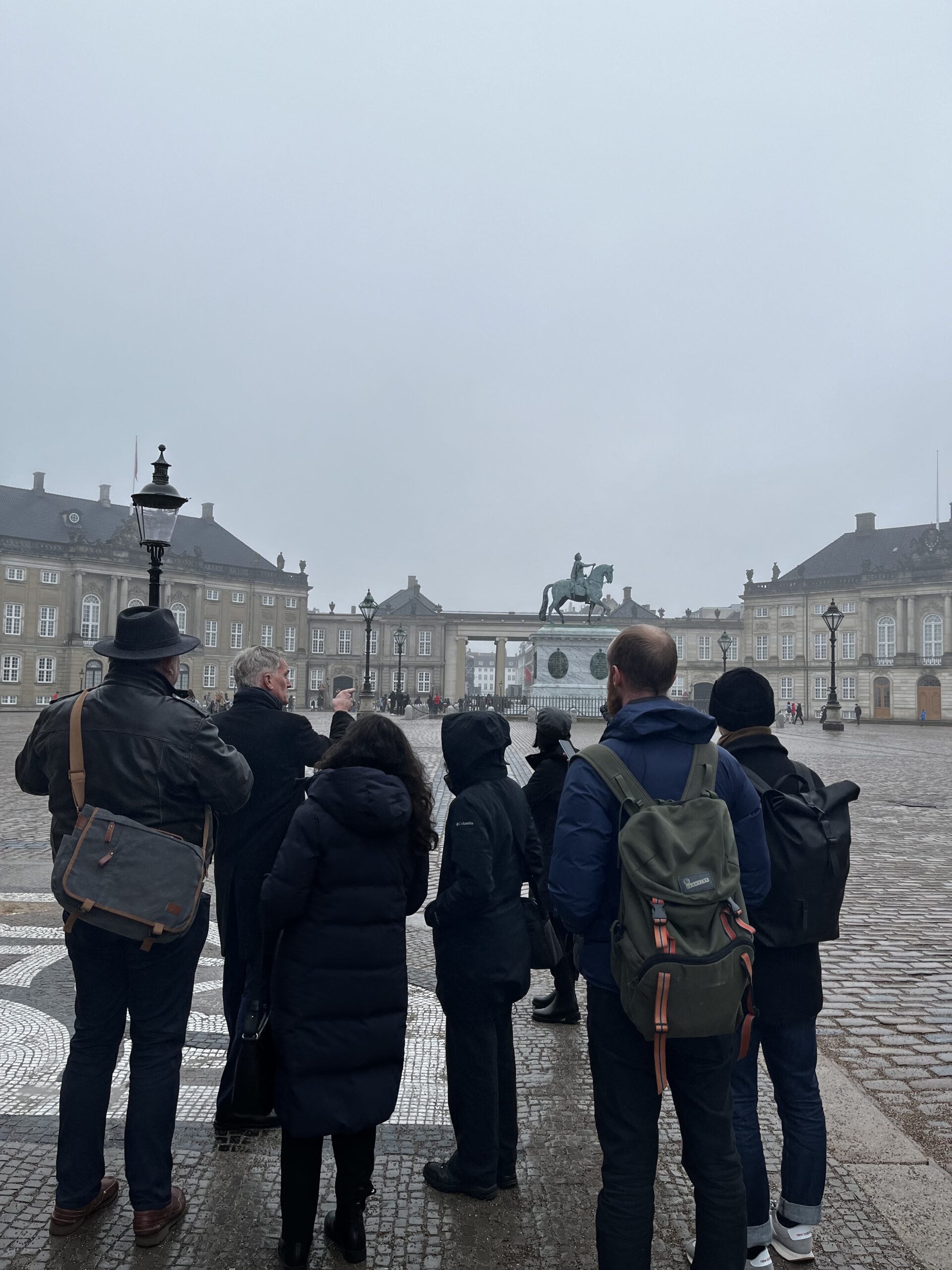
We had two sessions with different media organisations. The financial newspaper Børsen told us about several innovations they have done. One point of interest is that they have stopped writing ideological editorials. Of special interest to the fellows was Børsen’s section on sustainability. This was of interest both content-wise and because they finance it in a rather untraditional way. The sustainability section is not behind a paywall, but paid for by partnerships with Danske Bank and pwc. Whether this newly introduced financing model is successful or not will yet have to show.
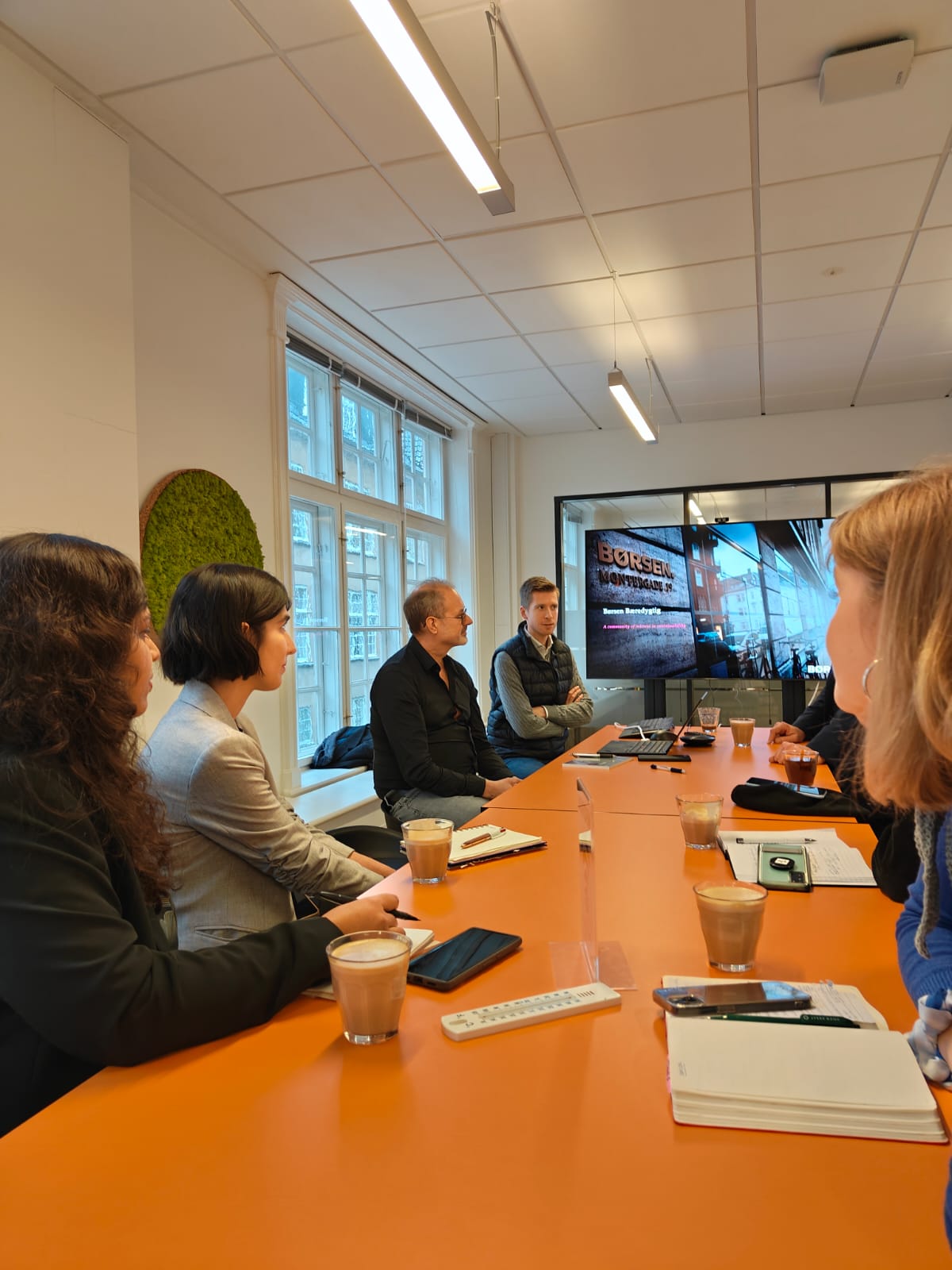
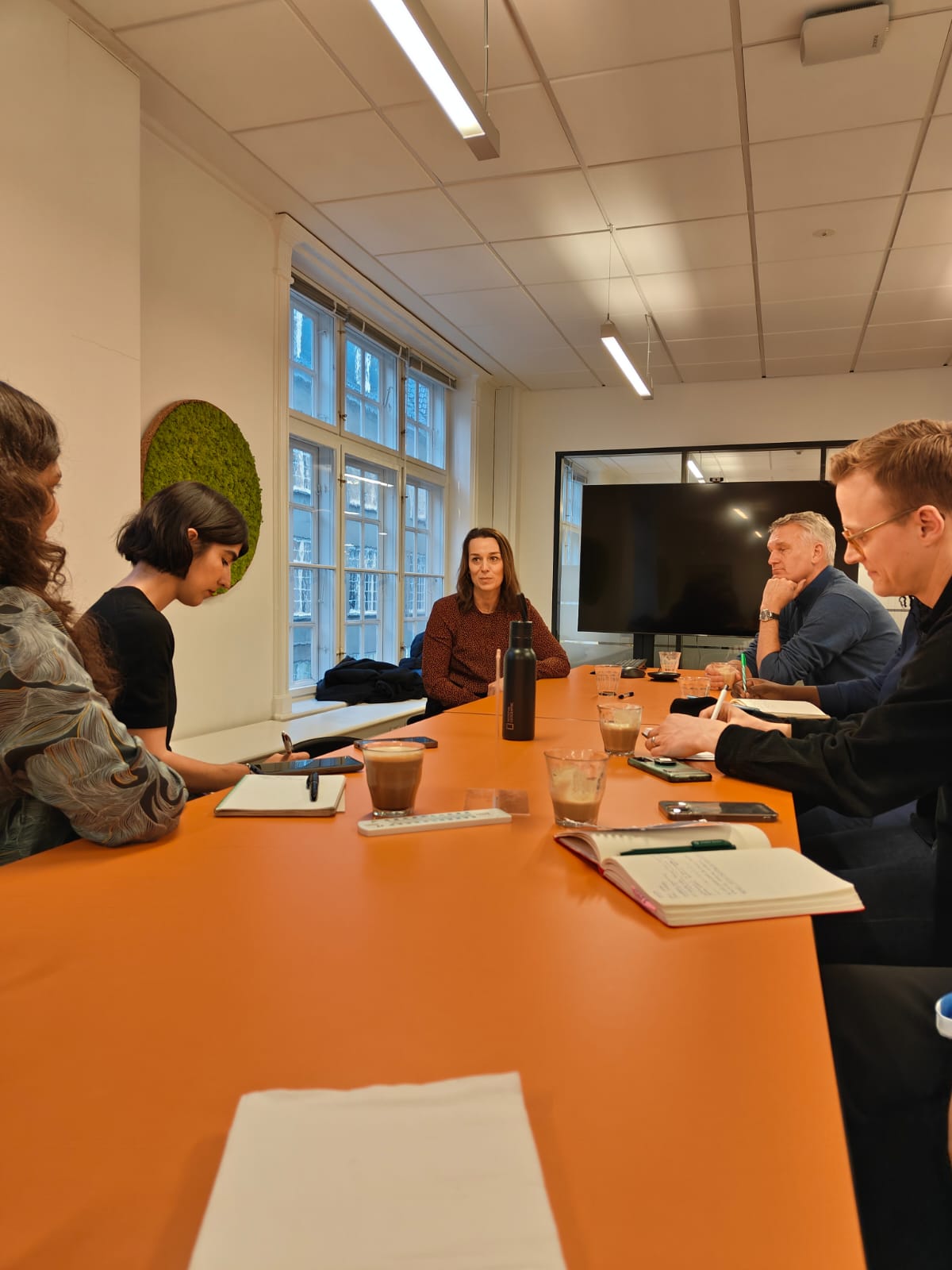
Our meeting with Kirsten Brosbøl was a high point of the tour. She is former minister for the environment and a member of the Danish Parliament. She has since left and is now working on making politics and the relationship between media and politicians less confrontational and toxic. Our discussion resulted in some interesting and valuable insights. Since politicians and those with power to bring change on a policy level are instrumental in addressing climate change, the former minister wishes for journalists and politicians to approach each other, perhaps ask “How can we help you?”, instead of working against each other.
The Group also visited ARC Amager Bakke/Copenhill, which is the garbage incinerator for Copenhagen and other nearby municipalities. The plant is huge, 82 meters high. It is also quite new and must be one of the most modern and advanced in the world. The energy from the plant goes to heating a large part of private homes in Copenhagen through a system that has been developed over several decades.
While the plant is good environmentally because it removes a lot of toxic gases and metals, its value regarding CO2 emissions is more questionable. The plant emits around 500.000 tons of C02 annually. That amounts to about 1% of the total of Danish CO2 emissions. Only a very small percent of the CO2 can be captured. Also, the plant imports waste for burning from countries as far away as Italy and the UK. This obviously entails a lot of transport, that also generates emissions.
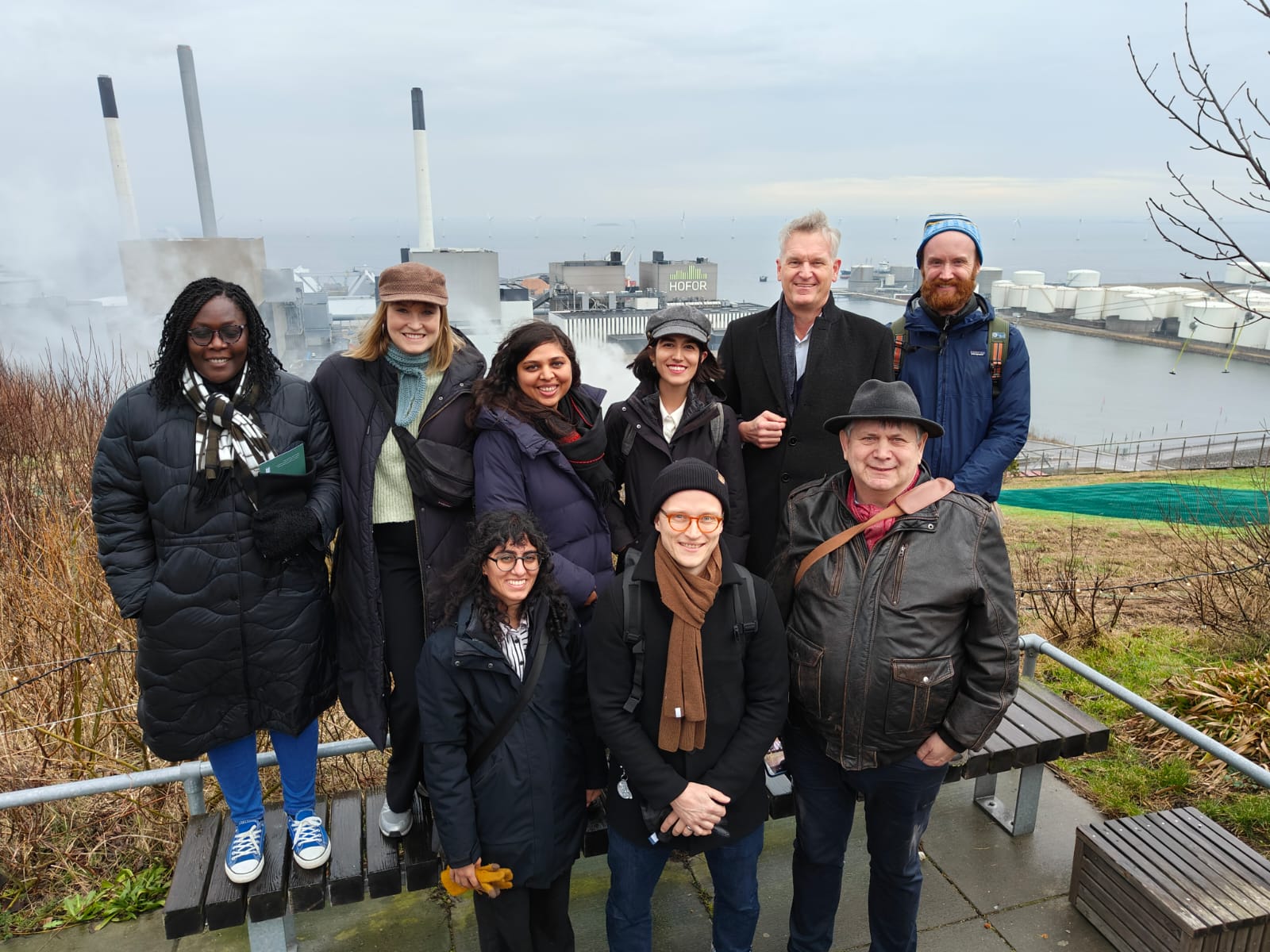
We all come from very different backgrounds. And yet we all have something in common: The urge to tell climate stories in a more constructive, effective way. Talking to people from different industries and organizations was very insightful in rethinking the crisis at hand. In conclusion, here are our key takeaways from our visit in Copenhagen:
Climate Change is also about human rights.
Climate change is about dignity, said Charlotte Flindt Pedersen, from the Danish Foreign Policy Society. “We need to see people as agents of change and not as victims,” she said.
Choose your words wisely.
Erik Rasmussen, journalist and founder of Sustainia, pointed out to that there was a “language fatigue” when it comes to climate coverage. Less technicalities, less jargon, more accessibility is needed when we are trying to make people understand the most important situation mankind is facing.
Stress on the urgency.
Politicians and those with power to bring change on a policy level are instrumental in addressing climate change. Which is why Former Environmental Minister, Kirsten Brosbol, suggested that journalists make both the public and politicians aware of the urgency of the issue, and meet in a more accomodating and helpful way.
Get the right narrative.
Climate fatigue is real. There are far too many stories about doom and gloom. Peter Andreas Norn, the program director for the Climate Future Lab at CONCITO, suggests to start writing more positive stories. “It’s not just carbon dioxide emissions. It’s also about health, job creation, development. Climate change lies underneath all of this.”
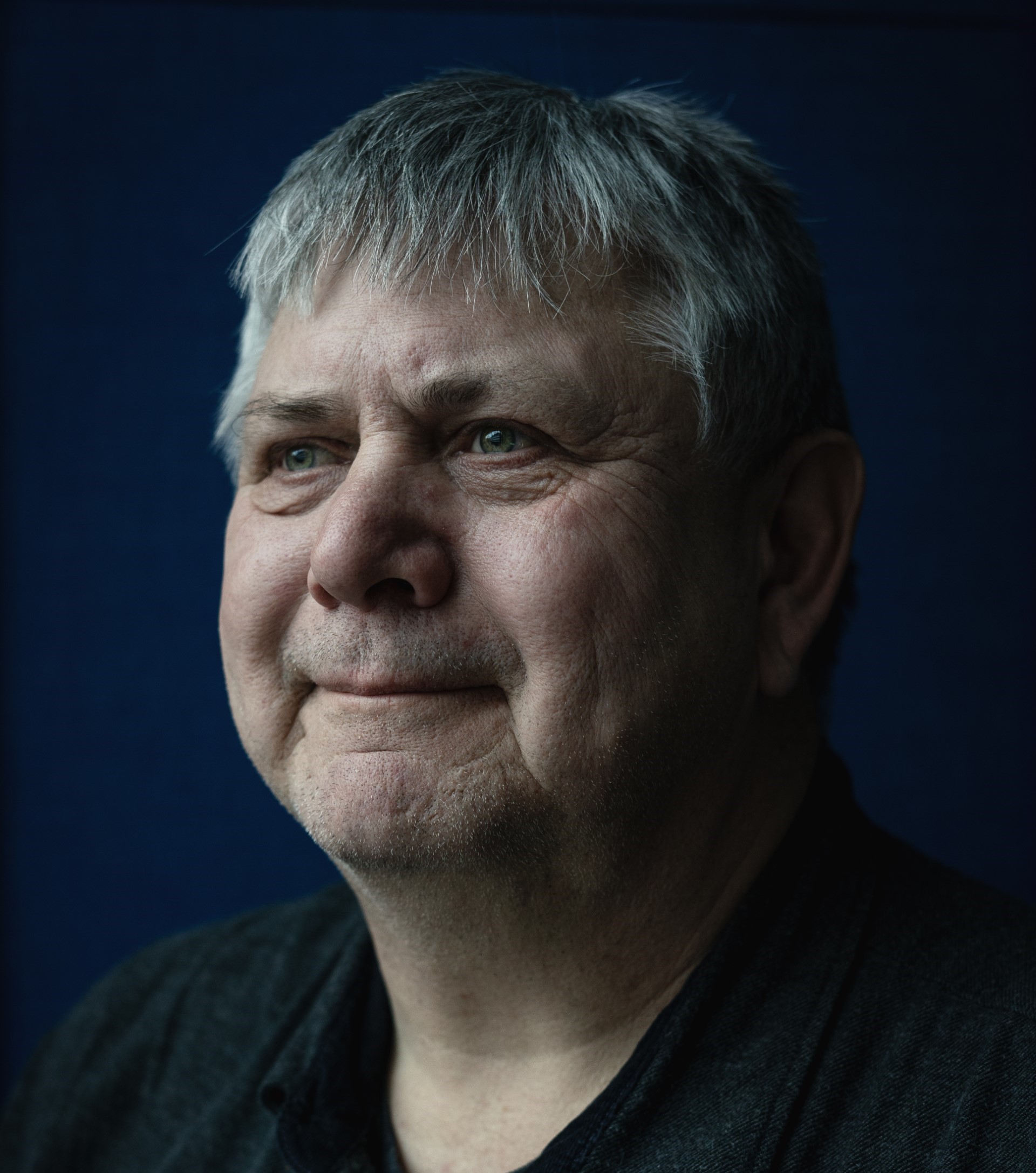
Kristian Elster
Climate Explorer 2024
